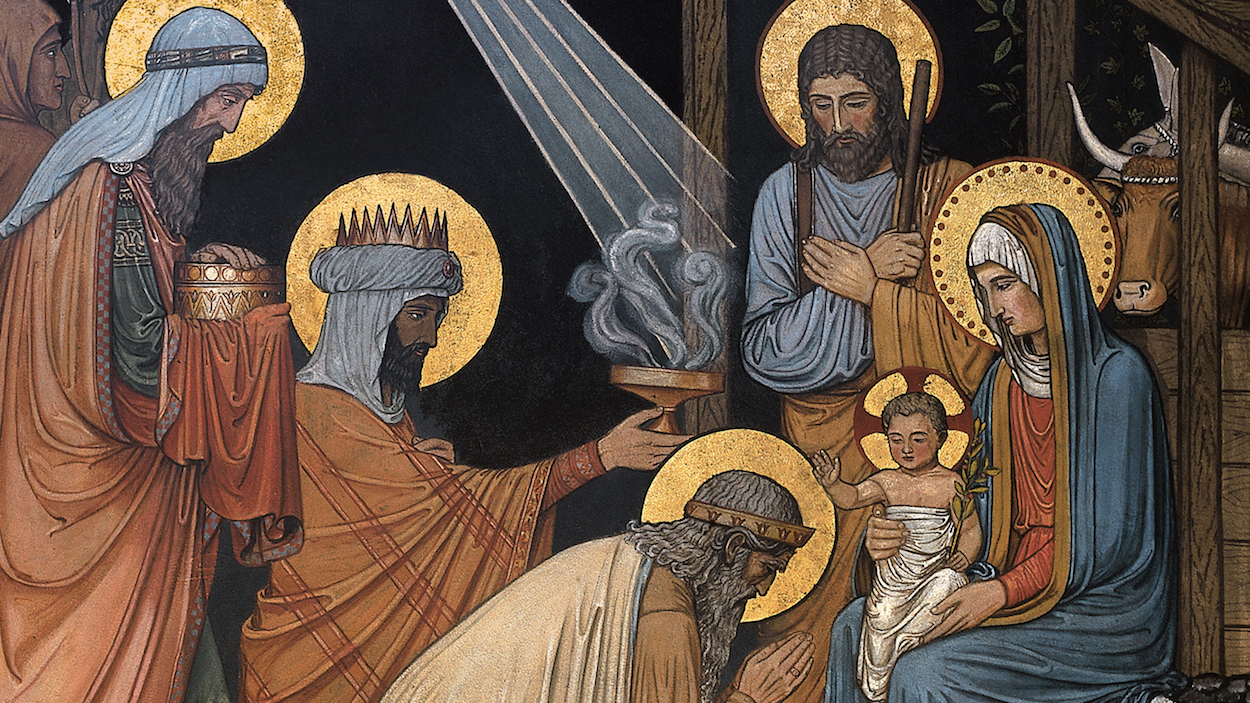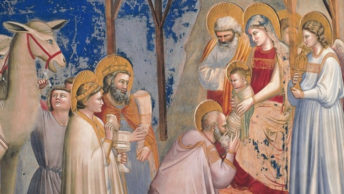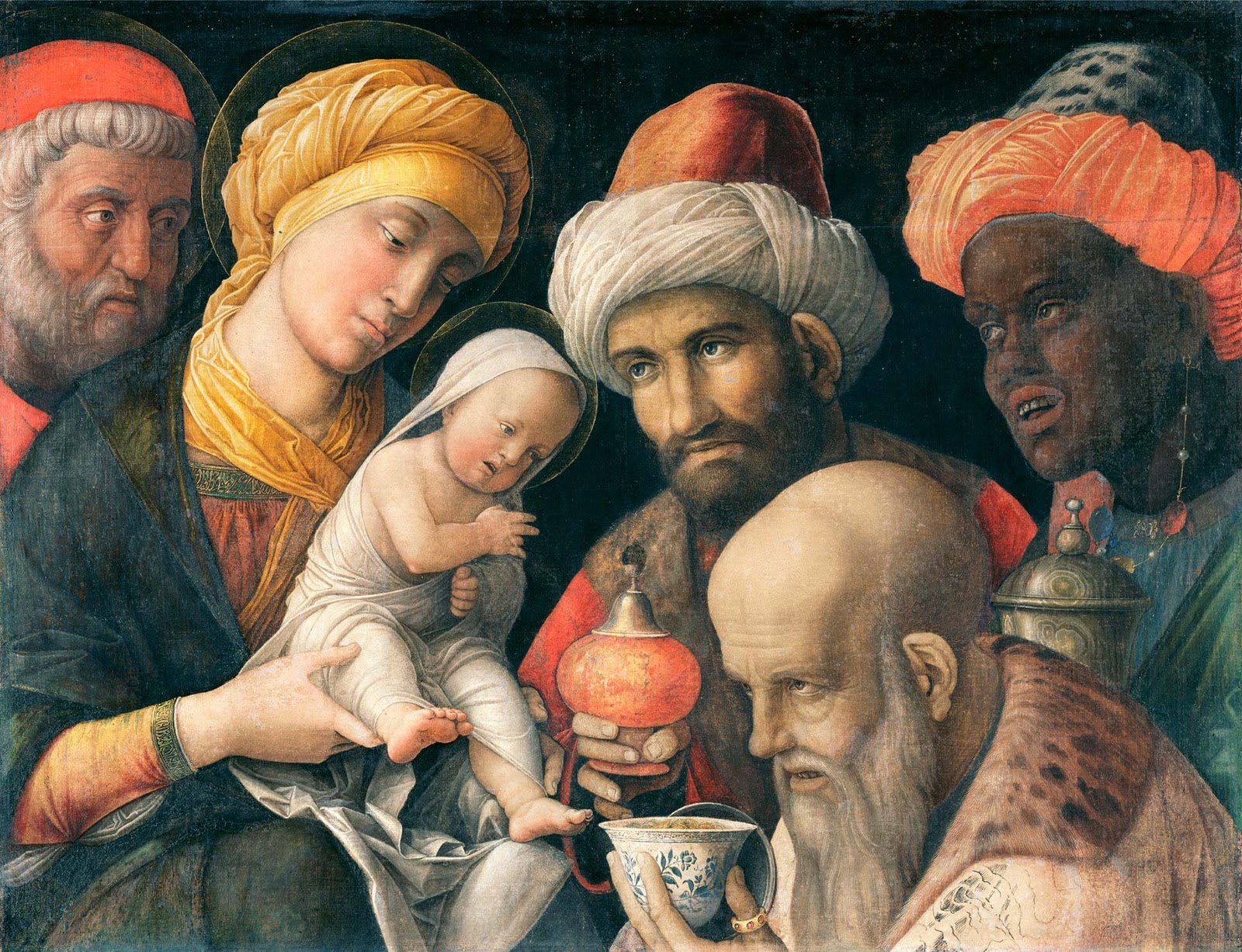The Epiphany is one of the most important feasts of our liturgical calendar. It is so because the Epiphany is the implementation, the application of the Paschal Mystery, God’s plan of salvation into which He wishes to include everyone, Jew and Gentile alike. As we read in St. Paul’s Letter to the Ephesians (3:2-3, 5-6), it justifies the meaning of the word “Catholic.”.
In a sense, it ranks ahead of Christmas because Christmas is only the beginning of salvation history in the Incarnation of the second Person of the Holy Trinity. We have been trained, almost unconsciously, to have pictures pop up in our mind at the mere mention of a particular feast. We have several pictures of Christmas, of the Baptism of the Lord, of the Last Supper and so on.
Today, on the day of the Epiphany, the manifestation of God’s plan of salvation, we picture three kings bringing gold, frankincense, and myrrh to the Infant Jesus.
It is nice to recall how, according to our tradition, these three gentlemen came from the East to worship Jesus, the new King and how, in the process, they must have helped out Joseph and Mary financially. Notwithstanding the fact that they were not kings but astrologers (magi), according to Matthew’s narrative, notwithstanding the fact that we do not have any knowledge of how many of them there were, if we stop at the pageantry of the event, we miss the whole point of this solemnity.
Our lack of spiritual progress in living up to the challenges of the Gospel can be attributed in great part to a mistake that we keep repeating. We recall events instead of reliving them in the NOW of God.
Every time we have God’s Word spoken to us, according to God’s plan of salvation, He intends to yank us out of our flat, uneventful life and thrust us into His ageless NOW. God pulls us away from the preoccupations about our wellbeing and concerns and back into the reality of the Paschal Mystery. He pulls us away from our petty routine and merely human quests for happiness and back into the energizing and caring life of the Mystical Body of Christ.
So, my dear friends in Christ, my fellow coheirs and members of the same Body, are you ready to let God do His Word onto us? Or, rather, are you willing to join me in doing this Word with Him, no matter what?
Remember, the reality in which we live is the Body of Christ. We, along with countless other people the world over, and, of course, across the millennia, coheirs, co-partners, co-members of the same Body, are the second Person of the Holy Trinity. We are the New Jerusalem. We cannot simply continue to slumber and remain unengaged in our spiritual rut. We are ordered to rise up in splendor because the curtains of our secure, comfortable, pious, little world are drawn open with a quick and resolute motion. The light of Christ’s glory blinds our eyes; it forces us to rise decisively and to operate within the reality of God’s Family, a family that is truly Catholic, so huge that it is more numerous than the stars of the sky and the grains of sand by the seashore.
Before this awesome display of God’s glory, we are challenged, today, to get our minds and hearts to soar far beyond the restrictive boundaries to which we are accustomed. We are the New Jerusalem, the new family of God.
The picture that God flashes before our startled eyes is one of scores of sons and daughters coming from the farthest corners of the earth bearing gifts. These gifts are God’s response to our reticence and insecurity about the found-again, broad dimension of the Church. The Magi bearing gifts of gold, frankincense and myrrh are just the first ones of many other gift-bearers.
But, as always, we are offered a choice. Jerusalem and King Herod were greatly disturbed by the news that a new King was born. We can be like them and insist, stubbornly, on living inside a church with restricted, comfortable, familiar horizons and fixed boundaries. Or, we can choose to embrace the attitude and the efforts of our recent Popes who, for the longest time, have dialogued, prayed and talked about God with Jews and with leaders of all major world religions—all within this broad vision of an ever-growing Family of God.
Perhaps, what God expects of us today, for a profitable celebration of His Epiphany, is the humility needed to doubt our present stance and toss aside any narrow view.
St. Theresa of Avila would recommend self-diffidence. We should never think or say or do anything to downplay the significance of God’s absolute, unfathomable sovereignty. We should at least doubt our understanding of things about salvation history and our inner attitude of excluding instinctively anyone that is different from us in any way. We should follow that up with a sincere anticipation of the gifts that outsiders are bringing into our Church.
Then, we should see, with total openness, how we can adopt the broad minds of our spiritual leaders and strive for the essentials in God’s family: i.e., full, heartfelt, compliance with the law of love, Jesus’ new commandment. And also we should stress always what unites us to all peoples and nations rather than what sets us apart, mindful that God’s Kingdom is the only one that will last into eternity.







